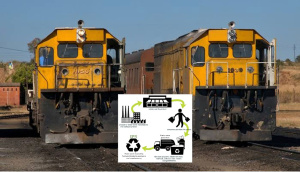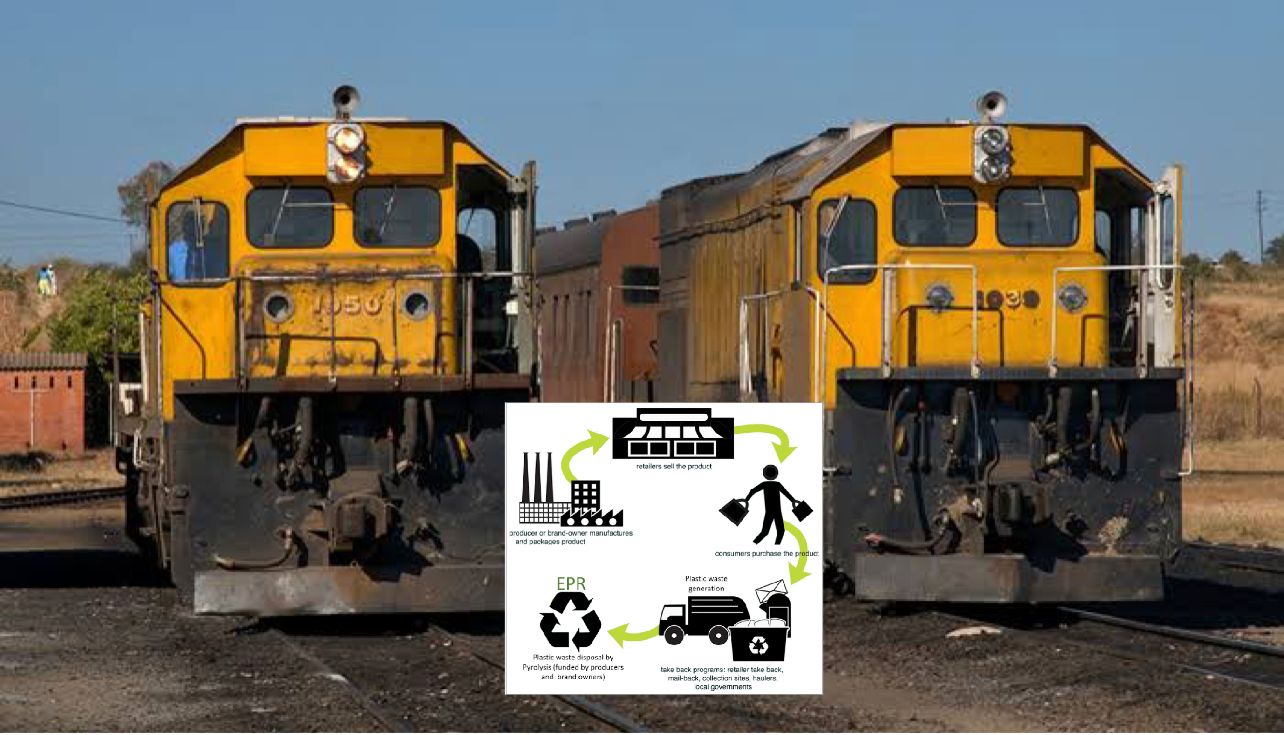
In numerous African countries subjected to sanctions, a pervasive issue arises as sanctioned nations face obstruction in obtaining parts, services and maintenance for their machines from the manufacturers.
As an illustration, in Zimbabwe, the National Railways of Zimbabwe (NRZ) has experienced a decline in rolling cargo from 18 million tonnes in 2000 to 3 million tonnes in 2023. In fact, by 2013, it had fallen to as low as 1.5 million tonnes, doubling to 3 million tonnes in the last nine years.
This drastic reduction is primarily attributed to 60% of the NRZ fleet and equipment becoming redundant after General Electric and other suppliers unjustly implemented illegal U.S. sanctions, denying the Zim parastatal replacement parts, services and maintenance for trains, technology and equipment that still have many years of life in them.
Similarly, various ZESA electricity generation units in Harare, Bulawayo and Munyati thermal plants remain non-operational because General Electric and other companies are withholding parts, service and maintenance from the Zimbabwean government, parastatals and affiliated companies due to sanctions. This action constitutes sabotage and a violation of purchase agreements.
Albeit, what is surprising is that the Zambian and Zimbabwean governments are said to have asked General Electric to bid for the tender to construct the Batoka Gorge power plant. The question arises as to why our countries would even invite GE to bid for more projects after it sabotaged NRZ, ZESA, and Venezuela’s Guri hydro power plants due to U.S. sanctions. Where is the logic in nations engaging a company that sabotages its own equipment? It’s like we are rewarding them for sabotaging Zimbabwe.
The same is happening with Boeing, denying Air Zimbabwe and previously Affirtair, similar after sales services and parts, hence the airliners are out of business, mainly due to the illegal implementation of sanctions by private manufacturers upon their own equipment. We have also witnessed the same at ZISCO steel, in agricultural businesses that use western agricultural machinery, cement manufacturers, fertilizer manufacturers and many others and now it’s time for us to address the issue.
When considering that these companies often hold patents prohibiting third-party reverse engineering of their parts without authorization, a critical question emerges: Why should companies be permitted to inflict punitive measures upon their customers [without just causes] through the implementation of illegal sanctions, thereby denying those who purchase their machines access to parts, services, maintenance and full-lifetime use of machinery?
Countries grappling with such sanctions should task their legal representatives with determining whether full-life after-sale services and parts provision are not integral elements to the purchase agreements of high-value machines and items.
Secondly, legal experts should scrutinize the #ProducerResponsibilityRegulations stemming from global climate agreements, which mandate manufacturers to uphold the maintenance of their machines to limit premature replacement that results the over exploitation of new resources, facilitate collection and recycling of old machines to avert dumping and environmental pollution.
It is evident that companies resorting to implementing illegal sanctions, rendering their clients’ machines obsolete and unproductive before their lifecycle completion, breach tacit purchase and service agreements and contravene environmental protection laws.
This deprivation of the customer’s of their full lifetime use of the machine, coupled with the denial of replacement parts, incurs unjust replacement costs, exacerbates global pollution and resource wastage by preventing a machine from realizing its full-lifetime use.
African countries must therefore leverage agreements like the African Continental Free Trade Area (AfCFTA) and environmental protection laws, to establish laws mandating lifetime maintenance and after-sales service agreements with manufacturers of all high-capital machinery imported into Africa.
This ensures that manufacturers do not merely sell machines to African buyers but they also commit to lifetime maintenance, preventing practices that burden African countries, diminish productivity and deindustrialize Africa by denying it machine maintenance for equipment that they have bought from a brand owner. These laws must also enable companies denied parts to pursue reparations and damages from manufacturers who deny them parts.
Even currently, African companies and governments that are being denied parts for machines by illegal sanctions, to obstruct productivity, need to be innovative and proactive to approach local courts, trade courts, international courts, environmental bodies and arbitrators to compel manufacturers to provide parts, servicing, maintenance and reparations for loss of production due to prematurely obsolescent machines owing to the irregular implementation of illegal sanctions.
There is a need for increased ingenuity in Africa to enforce consumer rights, free trade agreements, international law and uphold purchase and maintenance agreements effectively.
Written by Rutendo Matinyarare, Chairman of ZASM and ZUAUWS.
https://www.iamrutendo.online/post/implementing-illegal-sanctions-by-withholding-parts-breaches-sales-environmental-agreements




